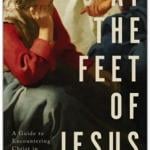Yang Jisheng’s Tombstone: The Great Chinese Famine, 1958-1962 is intended as a monument to members of his family, and to the 30 million others, who died in Mao’s famine. The famine left horrors in its wake: “Some villages transported corpses by the truckload for burial in common graves. In villages where survivors lacked the strength for proper interment, the limbs of the dead protruded from the ground. In some places, the dead remained along the roadsides where they had dropped... Read more




















